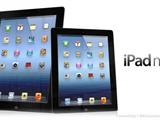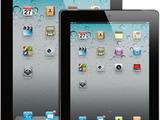Obama to Decide on Whether to Overturn Sales Ban on Apple's iPhone 4
Apple will likely know by this Friday whether U.S. President Obama and Trade Representative Michael Froman will allow the company to continue selling all versions of the iPhone 4 and iPad 2 in the United States.
Obama and Froman will decide before midnight on August 4, Washington time, whether to overturn the previous import ban issued by the U.S. International Trade Commission (ITC) against certain Apple products. On June 4, the ITC ruled that some older Apple products infringed on a Samsung data transmission patent.
Since former President Reagan exercised this right once in 1987, no U.S. President has overturned an ITC import ban. However, given Obama's focus on patent disputes, Apple hopes this case will be an exception.
Forrester Research analyst Charles Golvin said: "I hope that if Obama decides to intervene, he can take an approach that promotes more reasonable and coherent intellectual property policies, eliminating such maneuvers in the market. This would be more helpful than just protecting American companies from Korean ones."
If Obama takes no action by the deadline, Apple must stop selling the products found to infringe through its website and retail stores, and cannot import these phones and tablets into the U.S. anymore. However, products being sold by companies like AT&T and Best Buy can continue to be sold.
The import ban targets the iPhone 4 and 3G version of the iPad 2 on the networks of AT&T, T-Mobile USA, as well as two regional operators in Texas and Alaska. The iPhone 4 for other carrier networks is unaffected, and newer products like the iPad mini and iPhone 5 are also outside the scope of the ban. These older products typically have a two-year contract price of zero, and Apple wants to use them to attract new users.
IDC project director Will Stofega said: "Apple relies on older products to strengthen its ecosystem and draw people into Apple's world." Sales of older products helped Apple exceed analysts' expectations in the third fiscal quarter. It is widely expected that Apple will release new iPhones and iPads later this year.
Golvin said: "The high-end smartphone market is largely saturated. Any consumer who can afford and wants such a phone already has one. Some new users are still buying these phones, for whom price is very important. Being unable to sell these products to consumers will be a significant disadvantage." (Viking)



